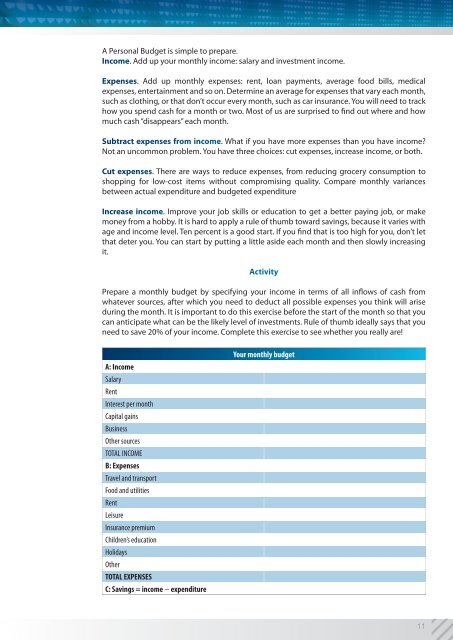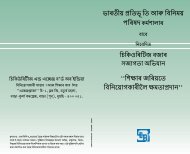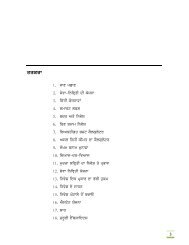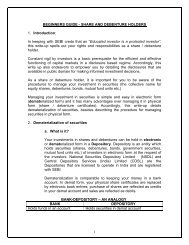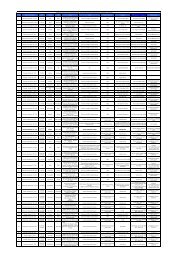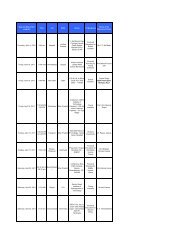Booklet - SEBI Investor Awareness Website
Booklet - SEBI Investor Awareness Website
Booklet - SEBI Investor Awareness Website
- No tags were found...
You also want an ePaper? Increase the reach of your titles
YUMPU automatically turns print PDFs into web optimized ePapers that Google loves.
A Personal Budget is simple to prepare.<br />
Income. Add up your monthly income: salary and investment income.<br />
Expenses. Add up monthly expenses: rent, loan payments, average food bills, medical<br />
expenses, entertainment and so on. Determine an average for expenses that vary each month,<br />
such as clothing, or that don’t occur every month, such as car insurance. You will need to track<br />
how you spend cash for a month or two. Most of us are surprised to find out where and how<br />
much cash “disappears” each month.<br />
Subtract expenses from income. What if you have more expenses than you have income<br />
Not an uncommon problem. You have three choices: cut expenses, increase income, or both.<br />
Cut expenses. There are ways to reduce expenses, from reducing grocery consumption to<br />
shopping for low-cost items without compromising quality. Compare monthly variances<br />
between actual expenditure and budgeted expenditure<br />
Increase income. Improve your job skills or education to get a better paying job, or make<br />
money from a hobby. It is hard to apply a rule of thumb toward savings, because it varies with<br />
age and income level. Ten percent is a good start. If you find that is too high for you, don’t let<br />
that deter you. You can start by putting a little aside each month and then slowly increasing<br />
it.<br />
Activity<br />
Prepare a monthly budget by specifying your income in terms of all inflows of cash from<br />
whatever sources, after which you need to deduct all possible expenses you think will arise<br />
during the month. It is important to do this exercise before the start of the month so that you<br />
can anticipate what can be the likely level of investments. Rule of thumb ideally says that you<br />
need to save 20% of your income. Complete this exercise to see whether you really are!<br />
A: Income<br />
Salary<br />
Rent<br />
Interest per month<br />
Capital gains<br />
Business<br />
Other sources<br />
TOTAL INCOME<br />
B: Expenses<br />
Travel and transport<br />
Food and utilities<br />
Rent<br />
Leisure<br />
Insurance premium<br />
Children’s education<br />
Holidays<br />
Other<br />
TOTAL EXPENSES<br />
C: Savings = income − expenditure<br />
Your monthly budget<br />
11


